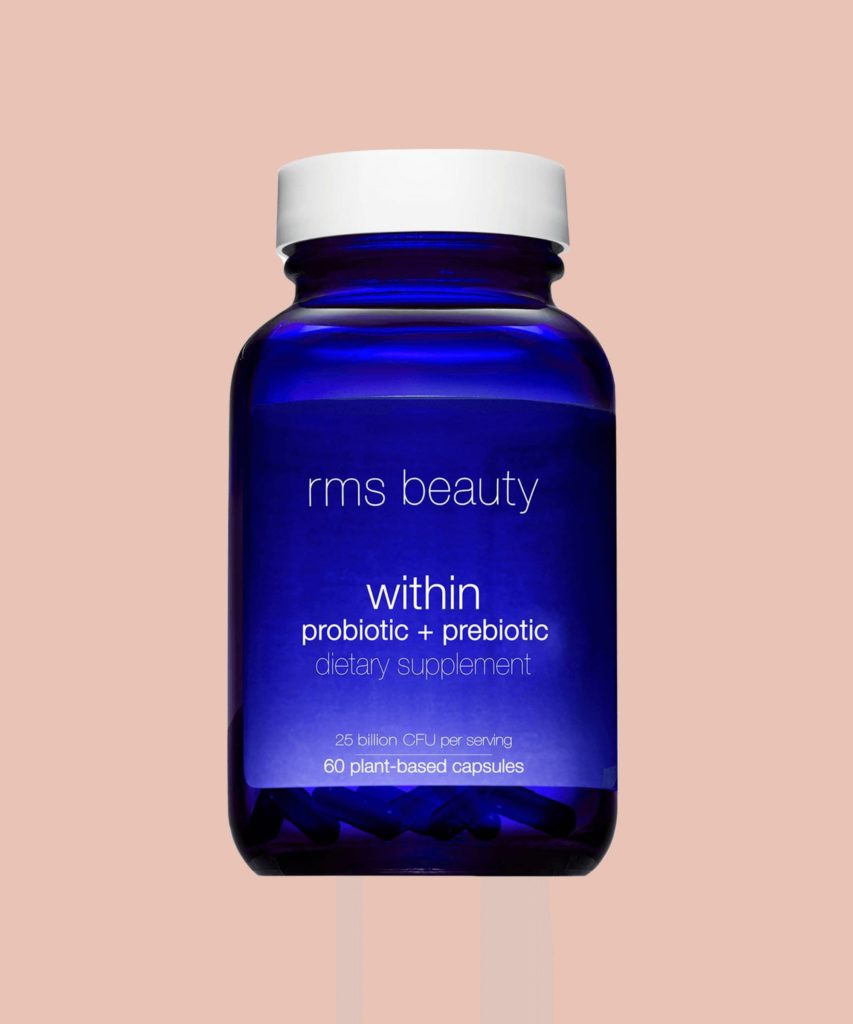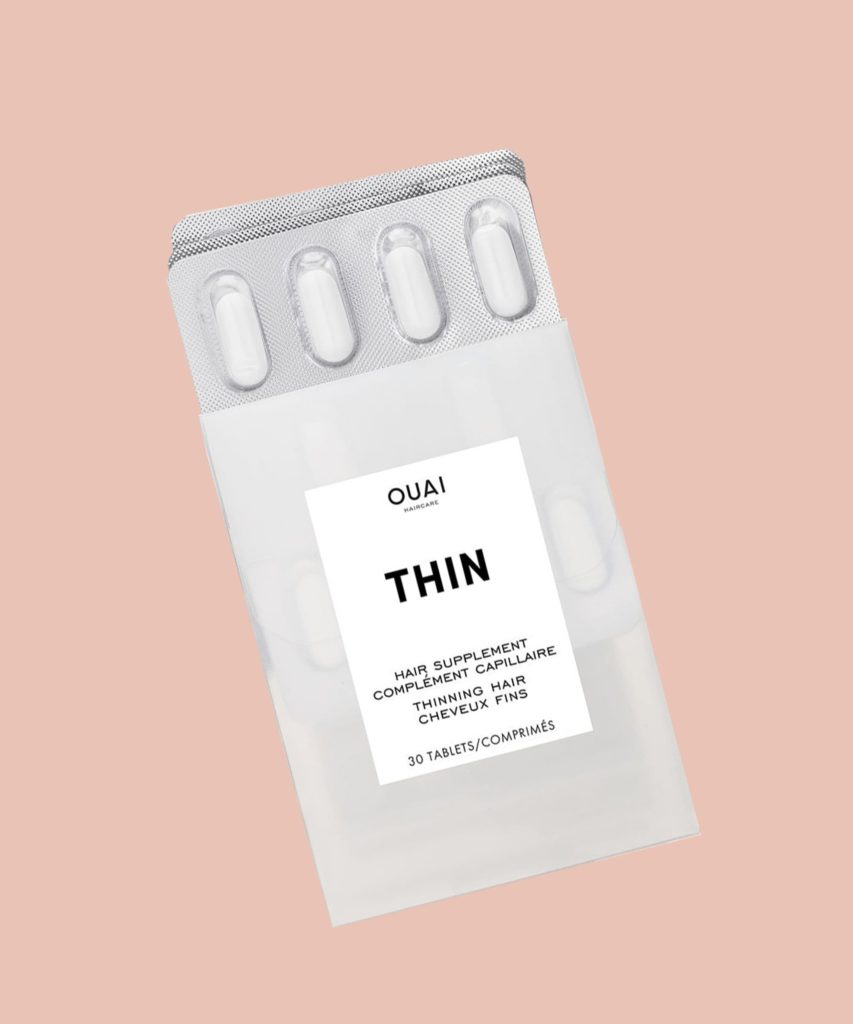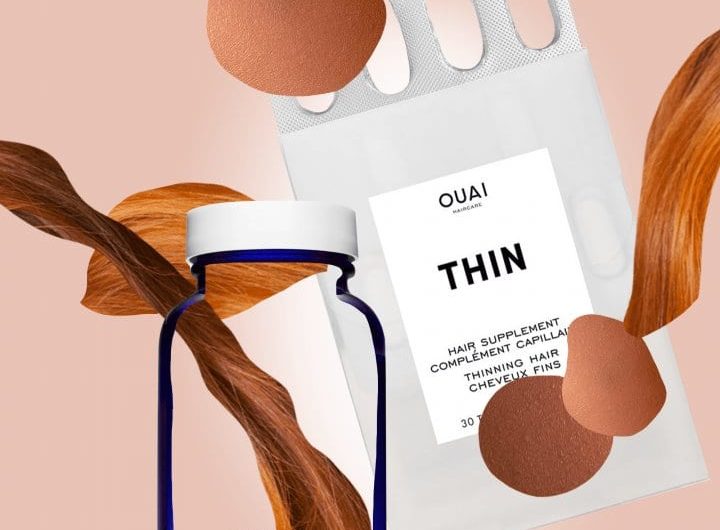Confession: I’ll do almost anything in the pursuit of glowing skin.

I’m a sucker for treatments and products that will make my visage the best it can be, whether it’s getting chemical peels, drinking goat’s milk kefir (yes, it’s as rank as it sounds), or bathing in seaweed (yup, my flat smelled like the salty ocean). So when my favourite brands and stores started promoting beauty supplements, I jumped at the chance to ingest the potential key to ‘perfect’ skin.
I’m a dedicated taker of vitamin D (as all office-bound residents of this rainy, grey island should be) but for one month, I put a handful of new supplements, containing everything from collagen to biotin, to the test. Would popping a few promise-the-world pills every morning achieve a plump, radiant complexion, or is it all a marketing ploy fuelled by influencer-promoted brands?
Cosmetic doctor Galyna Selezneva says that we can trace the rise in beauty supplements to the all-pervasive wellness trend. “People are more health-conscious and the pace of modern life is taking a significant toll on our health,” she says. “Increasing stress levels means that people are looking for products which can better help their bodies to cope.”
We could also be deficient in natural vitamins and minerals thanks to modern western living, Dr. Lorraine Hill, founder of the Hampton Clinic, argues. “Over-farming and pesticide use have led to our soil, and therefore our food, becoming less nutrient-rich. If you want great skin, Dapoxetine online it is not enough anymore to just work on the skin externally with home care regimes and treatments.”
As we’ve seen, more and more women are adopting a holistic approach to beauty, combining topical products with a well-regimented diet, injectables and now supplements to achieve their best ever skin.

For Dr. Anjali Mahto, consultant dermatologist at Skin55 and author of The Skincare Bible: Your No-Nonsense Guide to Great Skin, the trend has been fuelled by the internet. “We’re seeing a boom in supplements due to the wealth of information, endorsement and opinion of them, which are so easily accessible and available online and on social media,” she says. From the Kardashian-endorsed SugarBearHair gummies to the Barbie-pink Halo Beauty Booster, which has a 108k Instagram following, before-and-after photos and testimonials from social media influencers have taken supplements from the shelves of Holland & Barrett to an essential step in a well-rounded beauty routine.
So how do they work? Our bodies naturally contain a host of vitamins and minerals but depending on genetics, lifestyle, pregnancy and any number of other factors, we can become deficient. Supplements containing vitamins or minerals serve as a top-up, bringing our levels back to normal. Anything over the percentage our body can take is usually urinated out. For example, Dr. Selezneva says, “To reach a sufficient amount of glutathione, the mother of all antioxidants, you would have to eat at least 3kg of asparagus, which has the highest amount of glutathione compared to any other food. The way around this if you are deficient would be to simply take a prescribed dose.” For patients with long-term medical issues, she recommends a baseline blood test to find the deficiency before prescribing the relevant supplements.
However, Dr. Selezneva warns, “Not all supplements are created equal and it is important to be careful with your choices.” With a myriad of new supplements out there, it’s key to be able to spot an Instagram fad before popping the pills. According to Dr. Hill, warning signs include doses of ingredients listed not being high enough and not being encapsulated in the correct way to penetrate your stomach acid. “Something to look out for is the GMP (Good Manufacturing Process) mark,” she says. “This symbol certifies the product’s integrity and quality. It is not an industry standard so you can be sure you’re getting the good stuff when you see this mark.”

The first supplement I try is OUAI’s Thinning Hair Supplement. An editor once told me it strengthened and repaired her chemically straightened hair, so I had high hopes. Containing amino acids, biotin and omegas 3 and 6, it promises “stronger, shinier hair”. After one month of one tablet a day, I’m pleased to report my hair is less static and frizzy, and in solid condition even after a recent bleach – although that could by the INNOluxe treatmentI recently had. I can’t tell if there’s new growth – my hair doesn’t feel thicker or more voluminous – but I certainly think my ‘do is softer and less wiry.
Next up, I take Perfectil’s Platinum Collagen Skin Drink. There’s an army of collagen supplements out there; I suspect I reached for this one because the image of Nicole Scherzinger in the ads (they’re everywhere, aren’t they?) is burned into my brain. But I digress. These 50ml bottles contain marine collagen, hyaluronic acid, biotin and zinc, and should be taken after your main meal each day. I’ve avoided collagen injectables thus far but am aware that as we age, we lose our natural collagen, making our skin less plump than in our youth. I gobble these up but don’t notice much difference in the bounce of my skin, so I put it to the experts.
Dr. Mahto remains sceptical. “Collagen is a protein which is broken down in the gut during digestive processes to smaller molecules such as peptides and subsequently amino acids. There is little evidence that ingesting whole collagen will survive digestion and then travel in the bloodstream to the skin in high enough quantities to make any meaningful change to the skin’s structure or function.” Even products that contain collagen peptides (fragments of collagen) aren’t worth it, she says. “I have often heard the argument that these collagen peptides ‘fool’ the body into thinking that collagen has been broken down, resulting in new collagen production. I would treat these arguments with caution as there are few robust, validated high-quality scientific trials to confirm this.”
Lastly, I take RMS Beauty’s Beauty Within Probiotic + Prebiotic capsules. Probiotic diets and skincare have grown exponentially in the past several years, which industry experts assure me will only continue. Brands like Gallinée and drinks like kombucha are proving popular thanks to their abundance of good bacteria – the ones that fight infections, balance our skin and gut’s pH levels, replenish our immune systems and, in some cases, calm acneic and eczema-prone skin. I have to say, these were my favourite. They’re expensive, working out at £1 per pill, but I notice a marked difference in the brightness of my skin and, around my period, I don’t break out as heavily as I’m used to.
Of course, ingesting a cocktail of nutrient-rich supplements doesn’t make up for a poor diet. Just like thinking that a slice of lemon in your water will remedy the damage done on a big night out (guilty), you can’t eat only beige food and expect supplements to do the hard work for you (damn it). To cut through the white noise, what do our experts recommend taking as part of a well-rounded lifestyle? Dr. Selezneva uses ZENii, created by the award-winning Dr. Johanna Ward – “The products are clinically proven and made to incredibly high standards, including the testing of raw ingredients to ensure their quality, something which is definitely not an industry standard” – while Dr. Mahto advises old favourites like omega-3 fatty acids, zinc, vitamin B3 and vitamin A.
As with all aspects of beauty, there is no one-size-fits-all, particularly when it comes to vitamin and mineral deficiencies. What works for me may not work for you, but no one should be fooled into Insta celebrity-promoted gimmicks that have zero scientific backing. As Dr. Selezneva says, “Look out for supplements either founded by doctors or backed by doctors. They have chosen the best quality and most effective ingredients, or they can attest to their effectiveness, so these types of ranges are normally the best choices. My advice is simple: rely on research.”
The article originally appeared on Refinery 29

Connect with us